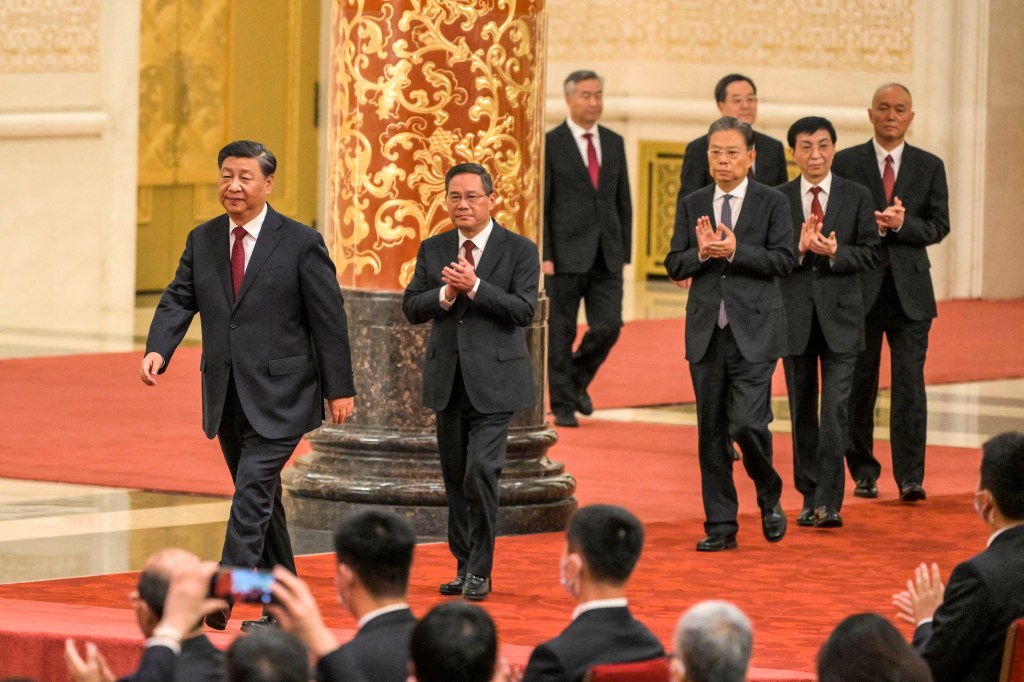Donald Trump gave verbal approval of China’s Uighur re-education camps—where as many as 1 million members of the country’s Muslim minority are currently being housed—during a one-on-one meeting with Xi Jinping in June last year, according to a recent account by former national security adviser John Bolton.
In a leaked excerpt from his upcoming memoir The Room Where It Happened, Bolton recalls a one-on-one meeting between Trump and Xi at the 2019 Group of 20 summit in Japan, wherein Xi defended China’s construction of “Vocational Education and Training Centers”: a series of internment camps, set up in the northwestern Chinese territory of Xinjiang, where local authorities have been detaining and indoctrinating Uighurs since at least 2017.
Videos by VICE
“According to our interpreter,” Bolton writes of the meeting, “Trump said that Xi should go ahead with building the camps, which Trump thought was exactly the right thing to do.”
The revelation comes amid a raft of allegations levelled against Trump in Bolton’s upcoming memoir, scheduled for release next week. Among them: that Trump begged China to purchase American agricultural products so he would benefit politically; that he pleaded with Xi to ensure he’d win the 2020 U.S. presidential election; and that he suggested “the two-term constitutional limit on presidents should be repealed for him”.
Claims regarding Trump’s alleged approval of the Uighur camps are particularly noteworthy, however, in light of recent events. On Wednesday, within hours of Bolton’s revelations surfacing in the pages of The New York Times, The Washington Post and the Wall Street Journal, Trump signed a bill calling for sanctions against the Chinese treatment of Uighurs.
In a statement issued Wednesday afternoon, Trump said the legislation—titled the Uighur Human Rights Policy Act of 2020—“holds accountable perpetrators of human rights violations and abuses such as the systematic use of indoctrination camps, forced labor, and intrusive surveillance to eradicate the ethnic identity and religious beliefs of Uighurs and other minorities in China.”
Trump did not hold a ceremony to mark his signing the bill into law, Al Jazeera reports. And according to Dr David Brophy, a senior lecturer in Modern Chinese History at the University of Sydney and a specialist on Xinjiang, he probably isn’t too interested in enforcing it.
“Judging from Bolton’s account, Trump is likely to have little enthusiasm to make use of the bill’s provisions to pressure China on the Uighur issue. If he does end up applying sanctions, it won’t be because of any commitment to human rights,” he told VICE via email. “Trump has never really taken a public stance on the camps. While people like Vice-President Pence and Secretary of State Pompeo have regularly denounced China’s treatment of the Uighurs, Trump has [historically] avoided almost any mention of them in his rhetoric towards China.”
Dr Brophy wouldn’t speculate on whether the timing of Trump signing the sanctions bill was linked to Bolton’s leaked accounts, or whether it was just a coincidence. He did point out, however, that Trump’s alleged endorsement of the Uighur camps “shouldn’t surprise us.”
“Trump has no qualms about treating entire Muslim populations as potential terrorists,” he said. “This [report from Bolton] tells us that his political instincts are close to Xi’s when it comes to demonising and repressing Muslim populations.”
Throughout his presidency, Trump has made his feelings toward Muslims clear on more than one occasion —whether through his own policies, such as the Muslim travel ban, or his checkered history of tweeting Islamophobic messaging on social media. His support of the Xinjiang camps, if it is true, would be yet another damning indictment of the way the American President views and treats Muslim populations around the world.
“[In endorsing the camps] Trump is endorsing a policy of mass detention and re-education, carried out in the name of counter-terrorism, which amounts to a full-scale assault on Uyghur religious and cultural life,” said Dr Brophy. “The US-led War on Terror has unfortunately given repressive regimes around the world an excuse for such policies. Sometimes the US colludes in them, sometimes it criticises them.”






